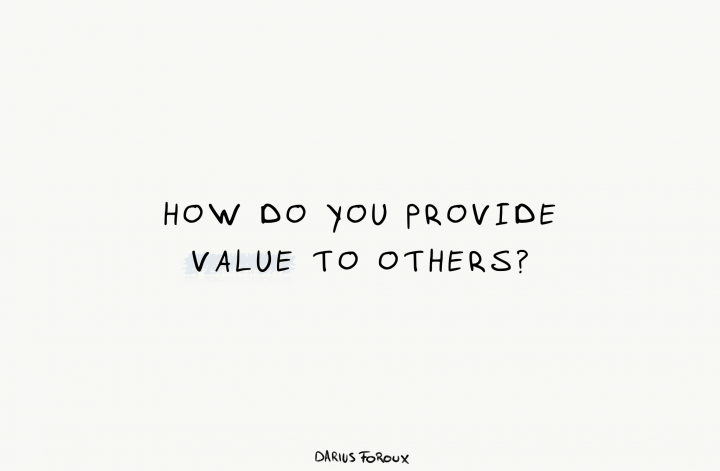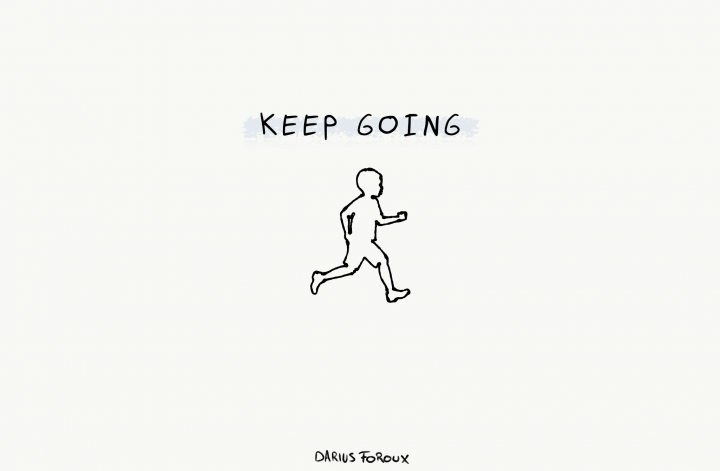A lot of people currently have work they never thought they would have. Often, money is the reason you take a job you are not passionate about (I’ve done this as well). For example, a lot of graduates take jobs in sales because it pays well. With many growing tech companies, you can earn six figures as a salesperson. 25 year-olds are making that type of money right now.
While money is wonderful and will make you happier when you go from zero to 50K, it will not bring you lasting happiness. Studies have shown that money and happiness do not go hand in hand. When you make 10 million dollars instead of 1 million dollars, you are not happier.
This is not new information. So why do people keep chasing money? When you earn money, you go on holiday, you buy nice stuff, a car, a house. Also, when you have kids, you want to send them to the right schools.
Before you know, that job you took to make money years earlier, has turned into a career that you didn’t want. And because you need the money, you’re afraid to take risks. You choose the safe thing—you stick with it. You give up.
If you’re thinking about taking a job just because of money, I’m not saying you shouldn’t. You will learn at every job, so you don’t have much to lose. But after a while, when you’re not learning anymore, you should pack your bags and leave. The only reason people stick to jobs where they don’t learn anything is money. Or they stay because of a promise that they will earn a promotion in the next year. The truth is the promotion might never come, and you will end up wasting your time.
You might not be able to plan your whole career, but when you start something, you should know where it goes. Your career is like a sailboat. Instead of always setting sail and going with the direction of the wind, you should be selective when you set sail.
Decide what you think is most important in your life. There is no shame in earning money—we all have to provide for our family and ourselves. But do not be a slave to money. Live below your means, and stay in control of your life.
Learning vs Money
I think everyone should choose to learn over money. You’ll earn more money in the long term when you focus on developing your skills and knowledge. But when money is the decisive factor in taking a job, and you’re not passionate about the work, you will become indifferent to the work. You’ll think, why should I spend time improving my skills? You just don’t care about the work. No one blames you; it’s entirely natural to be disinterested about things you don’t like.
It should be the other way around; you should take a job that involves work that makes you excited. Above that, you should do something you’re good at so you can add value. Everyone has strengths and weaknesses. Focus on your strengths—improving something you’re already good at will get you further than developing your weak skills. That doesn’t mean you shouldn’t work on your weaknesses. Developing weak skills are an essential part of growing, as a person and a professional.
But there is a difference in being good at something and doing what you love. Work is about adding value to people and businesses. You don’t get paid just by doing something you love—you have to be good at what you do. This is true for everything, from playing video games to cooking, to selling, to coding. Being mediocre doesn’t bring you anywhere.
Finally, rethink the concept of work. We separate life and work too often. Work is considered a way to earn money so that you can live the life you want. But the truth is that you spend a lot of your time at work. So what do you value more, your time or money?
Think of life and work as one. Find work you’re good at, and passionate about—so that you want to improve your work and skills. When you add value to other people’s lives, you will earn the money you deserve. Zig Ziglar put it best: “You will get all you want in life if you help enough other people get what they want.”




